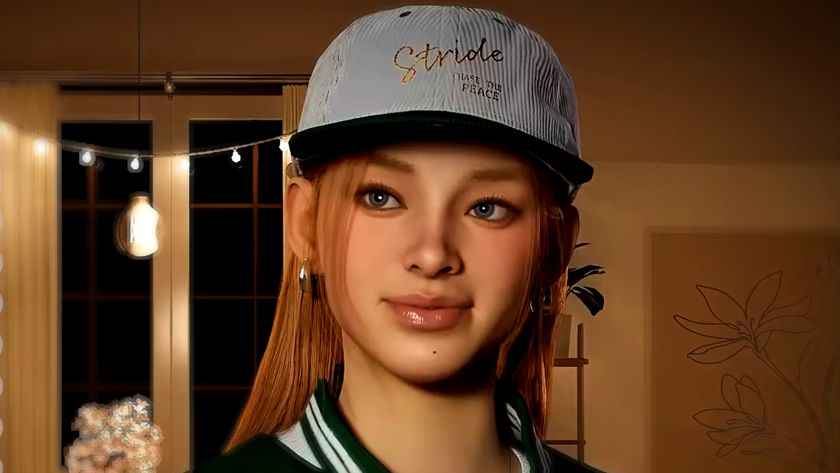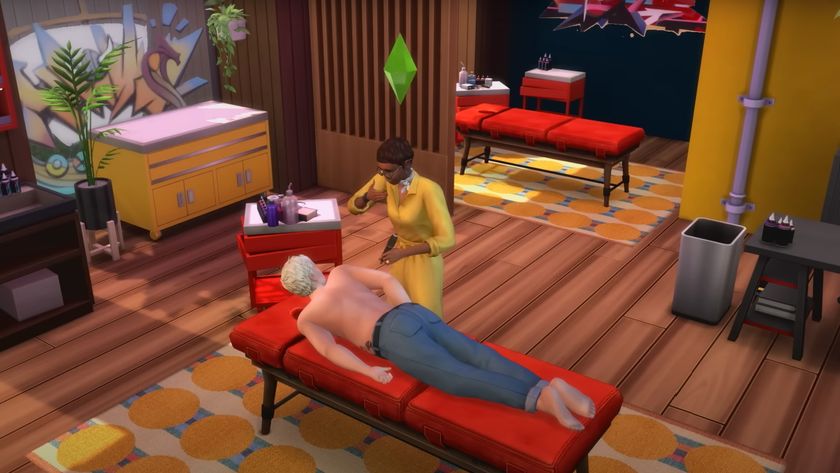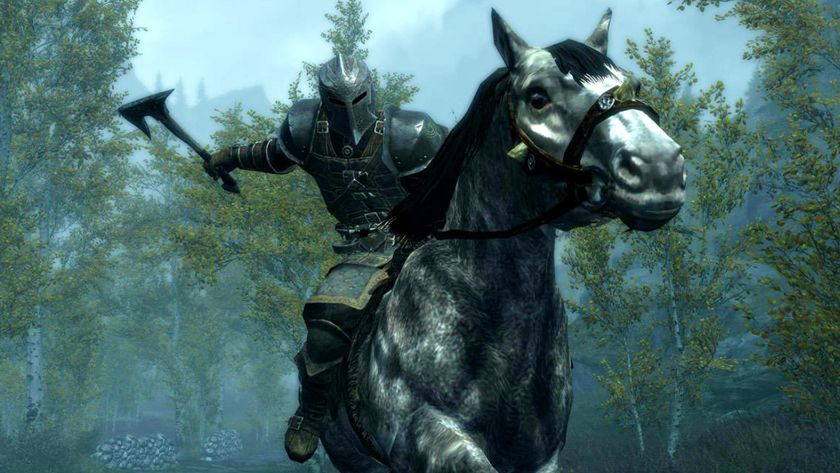The Sims 2: Inside the mind of Will Wright
PC Gamer asks the man behind The Sims how does he torture his little people?
We can barely keep up. Will is on a roll, from the very moment we meet him, he's off, chatting away, explaining the design decisions that makes The Sims 2 one of the finest games we've played. And, 'click'... we're recording every word...
What do you do in The Sims? What do you do when you're playing it?
That depends. Sometimes I'll recreate strange versions of real people. I did a version of Arnold Schwarzenegger in the game, but I called him Arnold Oppelganger and I made him a yacht, using the house tool. He had a big workout room downstairs, and a bar upstairs. Then I played it as though it was him, he was having all these parties and stuff. I did a similar thing before in The Sims 2, I made Das Loveboat, which was a combination of the America show Loveboat and the German movie Das Boot, it was a themed German naval romantic comedy. I do things that I call 'inventive storytelling', but then I also recreate my house and my family in the game. I couldn't create my house in The Sims, because it has three floors and a lot of diagonal walls, but I can do it really nicely in Sims 2.
I end up torturing everyone I create...
Oh, I do a lot of that too. The failure states in The Sims were so hard to resist. You realise, "Oh, wow, I can burn down the kitchen," and you get all mischievous, you can't help but do it.
You were saying you tell your own little stories within the game, but in fact, you've shied away from straight narrative.
I'm a games designer, I don't want to be a storyteller. I want to be a story-enabler. I think that the stories that the players create or tell are so much more interesting. I like the idea of games as a form of creative expression from the player's point of view. So the player feels very excited in investing themselves into creativity.
I read a quote from you somewhere that says that when you enter a game, you like to explore the boundaries of what it's capable of.
But I think everybody does that too. I think it's just a natural human behaviour. You put a tiger in a cage, and the first thing he does is wander around and explore the extent of the cage. When we're put into a new situation, we want to know what degrees of freedom we have. And then we can make intelligent decisions about how to behave or what to do. I think it's probably to do with a more general aspect of how humans approach problem solving. They want to know the extent of the possible solution space.
As a designer, you have to work out where to put those boundaries...
Yeah, and obviously we want a large space for possibilities, but it has to be dramatically interesting. You know, I could give you a paint program, and the creative possibilities are endless, but it's not very fun, or meaningful for the player.
Sign up to the 12DOVE Newsletter
Weekly digests, tales from the communities you love, and more
Is there a specific example where you've moved the boundaries forward or back? You've disallowed certain things within The Sims...
Yeah, but for different reasons. We wanted to keep The Sims kind of a fun playing field, so, we decided babies and toddlers can't die. The worst that can happen is that the social services will turn up and take your children away from you. I think it's going to lead to some exploits - because I've started to use my babies as firebreaks. I'd put my baby in front of the fire to make sure that it doesn't spread. I guess that's going to lead to some unexpected, weird, but funny consequences.
The Sims 2 graphics engine is so much more improved... Has that changed the way you see people playing the game?
I think that, combined with Sims' more elaborate animations and their greater awareness, memories and what-not, makes them more three-dimensional in your mind. When they are feeling tragedy, or success, or failure, you empathise with them so much more deeply. You kind of know that there are a lot more moving parts to their brains. This brings us to an interesting point. In some sense, it's easier to make the behaviour more complex, than it is to convey that behaviour. Say we made the Sims ten times smarter, and they had all these elaborate plans. The player would have no idea why they were doing something. At some point, it would appear completely random. The hard part is trying to convey what their intent is.
Hence the thought bubbles?
That's one tool we use. Film has this very established language where the director controls what you see and when you see it. The camera tracks that pencil rolling off the table, and it knocks the glass of water over, and the water trickles across... you see all the relevant things no matter how obscure they are. In games we don't really have that ability unless we grab control of the camera or the interactivity away from the player, and that's a really bad thing to do. So we have to develop a new language to convey what's going on, or why something's happened. It might even be after the fact: a Sim goes up and slaps the other one, and then when that's all finished, he tells you, "oh it was because he did this, and I did that, and so on, until he'd annoyed me this much." We don't need to do it in a temporal order...













